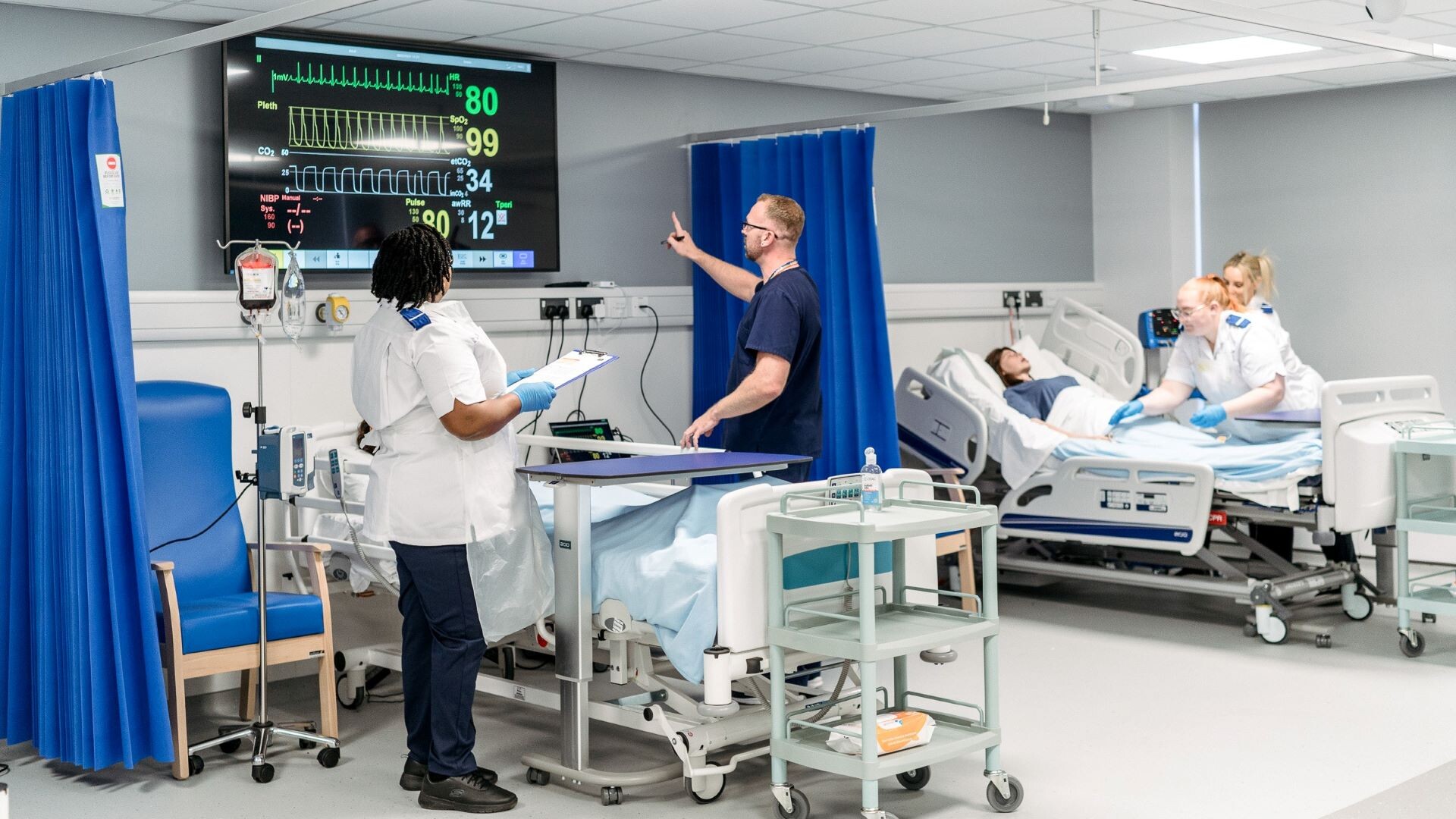Select a Category

Region’s Head of Nursing to open York St John University’s new health simulation suite for nursing and allied health courses
Professor Laura Serrant OBE, Health Education England’s Regional Head of Nursing (North East and Yorkshire), will officially open York St John University’s new health simulation suite on Thursday 30 March, alongside an audience of NHS partners and providers, University staff and students, and other invited guests.
The specialist teaching facilities, which opened for students in September 2022, give nursing, paramedic science, physiotherapy and occupational therapy students an authentic environment where they can develop their skills, alongside classroom and work placement settings in order to deliver safe, effective patient-centred care.
Professor Karen Bryan OBE, Vice Chancellor of York St John University said:
“These flagship clinical facilities present significant opportunities and possibilities, placing the University in a fantastic position to help meet the healthcare challenges of the future. York St John is proud to work with a range of NHS partners and providers to help secure the next generation of healthcare professionals in the region and ultimately provide outstanding care. Everything within these facilities is geared towards preparing our students for successful careers.”
Dr Rob Sanders, Head of the School of Science, Technology and Health at York St John University added:
“I am delighted to be welcoming Professor Serrant to our new health simulation suite and to be showcasing the state-of-the-art facilities. The suite offers our nursing and allied health students realistic training environments where they can develop their assessment and clinical decision-making skills in controlled conditions.”
The health simulation suite supports more than 500 students that study nursing, paramedic science, physiotherapy and occupational therapy courses. Nursing and paramedic science are new courses offered by York St John, whereas the University has been proudly training physiotherapy students for many years and celebrates 45 years of occupational therapy this year.
The new facilities include two hospital simulation wards, each with their own sluice and separated by a clean room; two large clinical skills rooms for paramedic science; specialist physiotherapy and occupational therapy skills rooms; consultation spaces; and dedicated lecture and seminar spaces. In addition, a mock independent living flat creates a realistic environment for many community-based nursing and allied health roles to further enhance simulation activities.
Each hospital ward contains eight profiling beds, alongside a variety of equipment used in hospital, community and outside scenarios. Stethoscopes, pulse oximeters, urine analysis equipment and ECG machines complement other hospital-based equipment including a resus trolley and drugs cabinet. Clinical skills rooms contain ambulance structures, Realiti 360 paramedic simulation kit bags, synthetic skin for realistic feeling canulations and skinless anatomical manikins, enabling effective simulation of emergency scenarios in the field and to aid understanding of the human body.
Simulation is used across a wide variety of clinical teaching on all courses, alongside theoretical study and placements. Recent paramedic simulations have featured flat fires and car crash scenes, bringing together multi-professional group collaborations with other allied health courses, as well as students on courses such as policing and journalism. As part of these scenerios, the North Yorkshire Fire & Rescue Service and Yorkshire Ambulance Service are also in attendance to offer industry-standard experience and further their own training.
The University has strong partnerships in the region, with placements shared between the NHS and independent healthcare providers including hospitals, GP surgeries, residential care homes, the Yorkshire Ambulance Service, sports clinics and military rehabilitation units. Upon completion of their degree, graduates are eligible to apply to register with the regulatory body for their profession, putting them in an excellent position for obtaining employment.
Read more about the courses offered in nursing and allied health at York St John on the University website.


